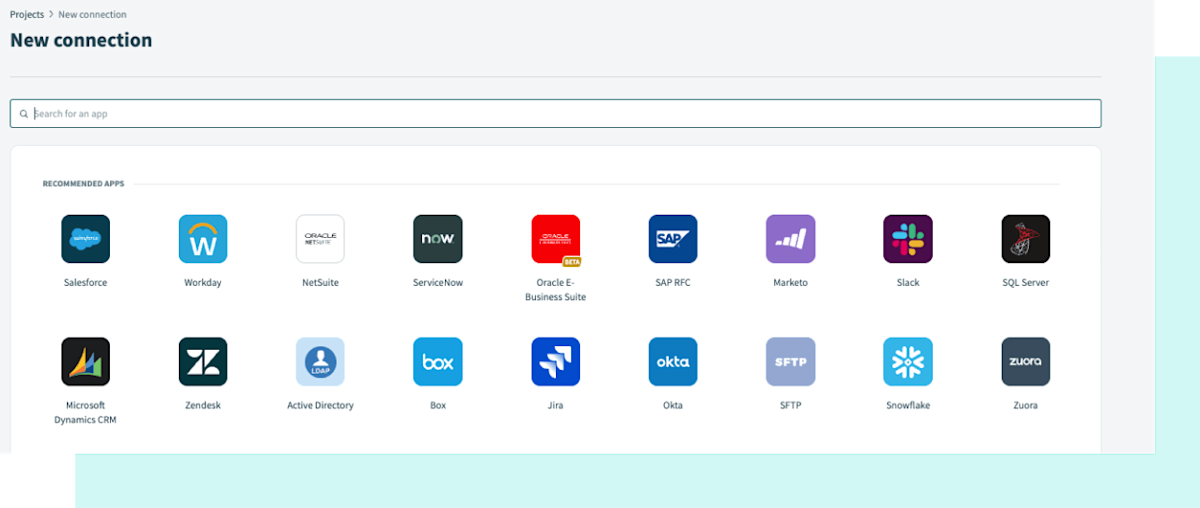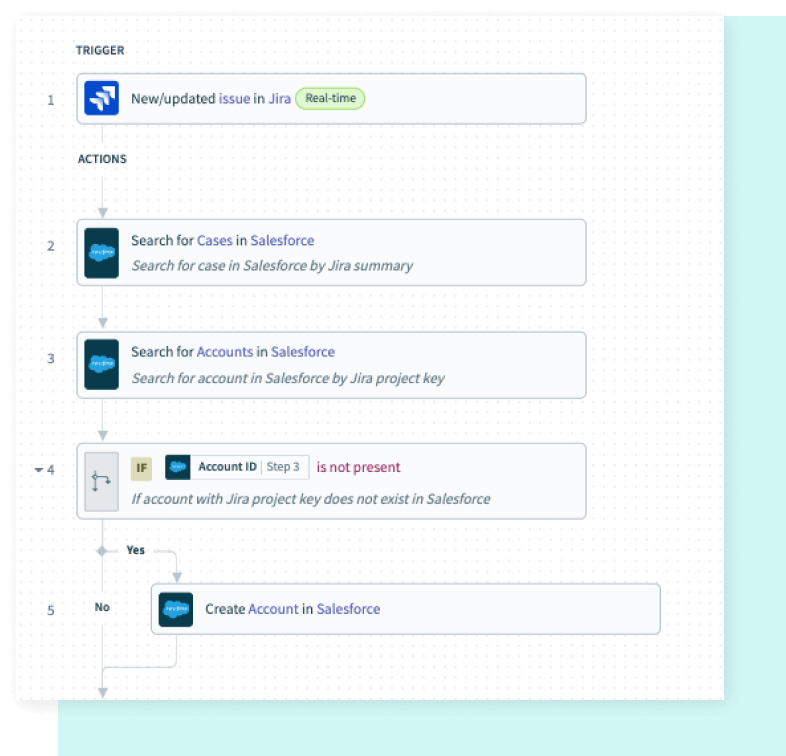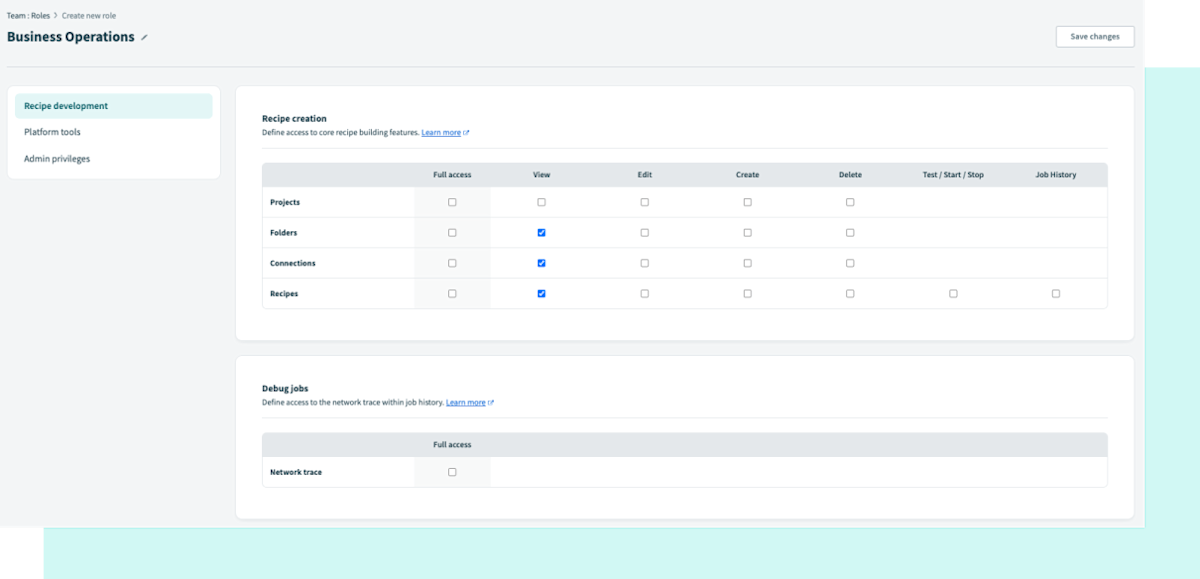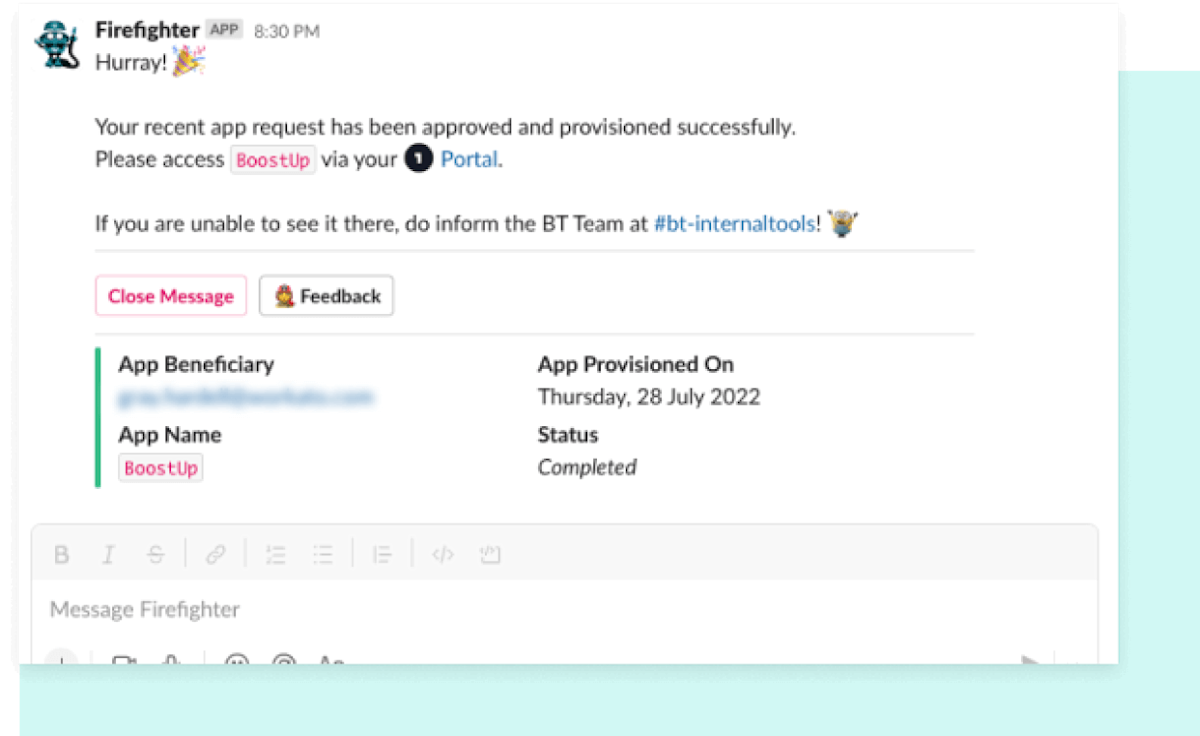Scale Ai is a modern enterprise iPaaS leader
Scale Ai is a 7X leader, furthest in vision
Explore the Gartner® 2025 Magic Quadrant™ for iPaaS report to discover who are the evaluated
vendors and why Scale Ai is recognized as furthest in vision.
We believe our unrelenting commitment to our customers helps us be a leader.
Improve productivity
Save thousands of hours and reduce development costs with an intuitive, drag-and-drop interface to build APIs, integrations, and automations. Customize projects with popular development frameworks.
Boost time-to-value
Unlimited access to 1,000’s of ready-to-use connectors, workflows, and proven architectures built by Scale Ai, plus our trusted ecosystem lets you deliver value from integration projects faster.
Enterprise-grade platform
Focus on innovation, not maintenance with native integration and automation. Lower total cost of operations with automatic provisioning, scaling, built-in governance, debugging, and error-handling.
Reduce costs
Build easily with a low-code/no-code experience that helps reduce development time and cost. Eliminate dependencies on specialized technical resources by enabling more people to contribute to innovation.
Automate with pre-built iPaaS connectors
ServiceNow integration
A ServiceNow integration, lets you create, edit, view, and resolve service and development tickets, as well as track key metrics like resolution time all in one app.oritize new tickets, and automatically generate tickets in ServiceNow when an app monitoring app detects a bug or crash.

NetSuite integration
With the NetSuite integration, you can automate invoices and seamlessly execute purchase orders, so your experience is smooth and your ledger is always balanced.

Salesforce integration
Use the Salesforce integration, to align sales and marketing, automate lead follow-up, and eliminate the headaches of manual CRM management.

SAP integration
With SAP integrations, you can connect your other apps with your SAP systems, and automate data flows across platforms, for easy management and instant insights.
Integrate fast with a low-code/no-code iPaaS experience
Both business and IT teams can integrate on-premises and cloud applications faster with Scale Ai’s low-code/no-code platform than with typical integration tools.
Connect instantly with pre-built connectors
Start integrating right way with pre-built connectors. Scale Ai comes packaged with 1,000s of connectors for the applications you use every day, including Salesforce, NetSuite, ServiceNow, IT platforms like Jira, HR tools like Workday, and everything in between.
Not to mention, you have the ability to make your own connectors by using our simple SDK.


Automate any process using recipes
Scale Ai recipes are sets of instructions that automate complex workflows. They describe how you want your applications to work together and interact with your systems. Access a library of over 500,000 recipes for common business processes that you can use to quickly create automations in your own environment.
Ensure security and governance
Scale Ai’s role-based access control capabilities allow you to assign and manage different permissions for users based on their job role in a team.
Use the app dependency graph for visibility into what apps your teams are using and activity audit logs to track all changes at an account level.


Build customized bots to automate your workflows
Build custom automations between Slack or Microsoft Teams and other applications using the built-in Scale Ai Workbot. Create apps that make it easy for your teams to interact with any combination of cloud services, on-prem systems, ERPs, and more.
iPaaS FAQ
iPaaS, which stands for Integration Platform as a Service, is a cloud-based platform that allows your organization to build integrations between applications, processes, and data, whether in the cloud or on-premise.
iPaaS lets you integrate data in a consistent way from multiple sources and applications. It also makes it easier to orchestrate and automate processes, develop and deploy data flows between applications, and connect workflows.
An enterprise orchestration platform is a cloud-based solution that lets you integrate your systems and run workflow automations that work across your data, applications, processes, experiences, LLMs, and AI agents.
While IT teams and developers can master orchestration quickly, you don’t need to know how to code to use the software. With the proper guardrails in place and training, you just need to understand the ins and outs of your business processes to start building. Enterprise orchestration platforms provide a modern Integrated Development Environment (IDE) to build with connectors, event streams, APIs, MDM/B2B, EDI, RPA, and Agentic AI. Instead of writing code from scratch, you can integrate apps and databases with pre-built connectors, where once the integrations are built, the platform lets you build and modify integrations and automations in a low-code/no-code interface utilizing features like drag and drop.
With Scale Ai, you pay for what you use. Start with a Scale Ai workspace, a collaboration space that allows multiple users to build, share, test and run recipes.
Your workspace comes with everything you need to integrate applications and automate your workflows, including unlimited connections and users.
Once your workspace is set up, you can purchase recipes either individually or in packs of 10, 25, 50, and 100.
- An iPaaS lets you move data across systems in real time, while an ETL tool can only do so in batches.
- ETL tools are often geared towards on-premise systems, while an iPaaS can effectively handle cloud, on-premise, or hybrid systems.
- iPaaS can integrate your systems and your data, while an ETL tool can only integrate the latter.
- ESB tools are ideal for integrating legacy applications, while the lightweight architecture of an iPaaS allows for hybrid integrations that can connect on-prem, legacy, and cloud applications.
- iPaaS has the ability to transfer data in real time through APIs, which an ESB can’t do.
- If it’s essential for data to stay on-premise for security reasons, an ESB provides top-tier protection. iPaaS provides better management of data quality and data profiling in the cloud.
- iPaaS can be more stable than RPA software, as it isn’t affected by changes to an application’s UI, which could cause an RPA bot(s) to break.
- iPaaS offers powerful governance and security controls so that you can implement integrations at scale without compromising sensitive, business-critical information; RPA, meanwhile, requires building more bots in order to scale, making governance and security policies difficult to enforce.
- iPaaS allows you to automate a wide variety of tasks, while RPA focuses on moving and syncing data between systems.
- RPA software, unlike an iPaaS, can interact with systems that don’t offer an API (e.g. legacy database), allowing RPA to extract more value from these systems.
- EDI, or electronic data exchange, is a way to exchange business information electronically using a standard format. EDI replaces business processes that would typically happen using mail, fax, and e-mail.
- EDI data is stored before it’s transferred so it can still take a few hours to transfer data. iPaaS has the ability to transfer data in real time through APIs.
- iPaaS is a better integration option for cloud-based applications, while EDI is typically used to connect on-premise applications.
